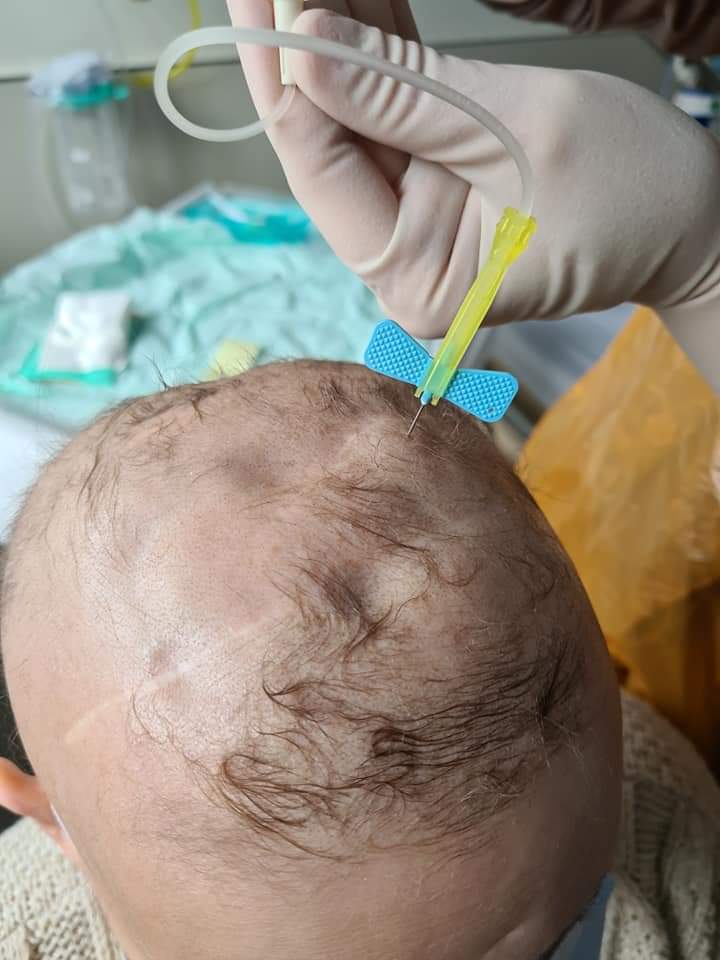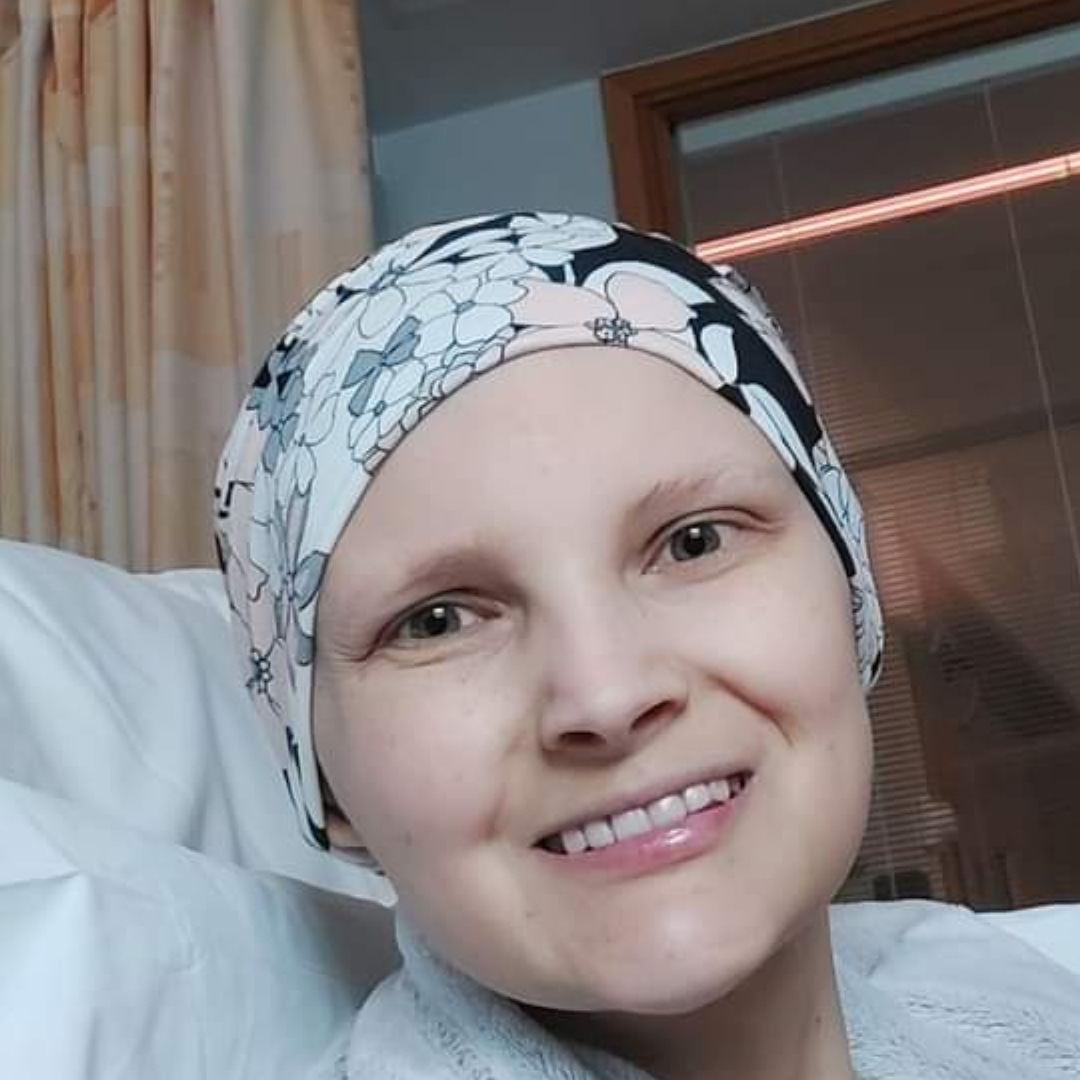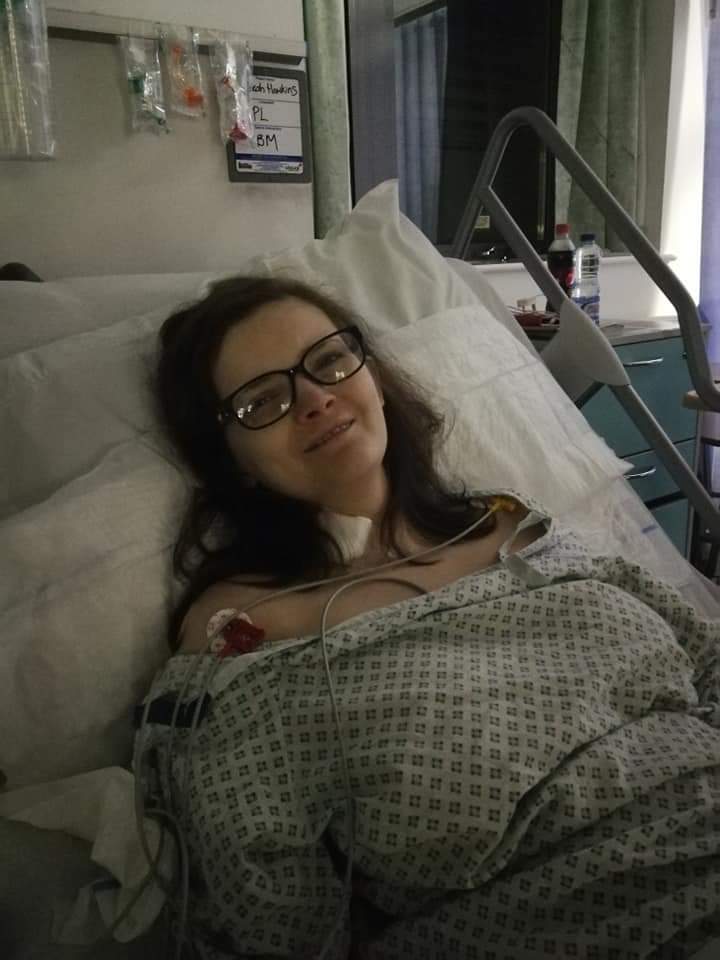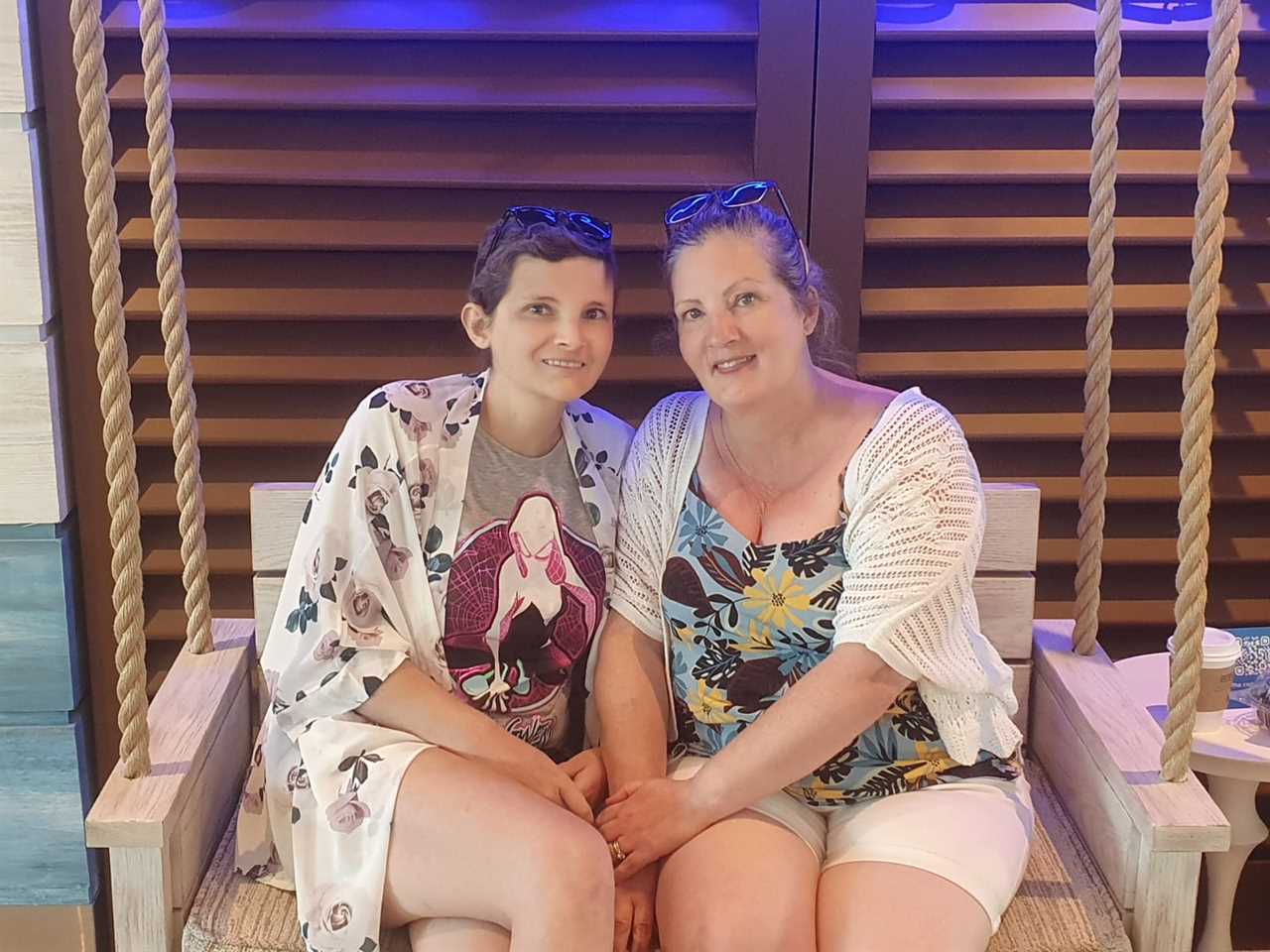A MUM has spoken of the agony of watching her child’s teens and 20s get ravaged by disease.
Deborah Hawkins, of Mountain Ash in Wales, has spent the last eight years supporting her daughter Rebekah, 25, through debilitating cancer treatments, brutal surgeries and devastating three-monthly scans.


Now, following another relapse, mum Deborah is hoping to raise enough money to give her daughter a special room of her own, that’s suited to her needs and means she’ll never have to go into a care home.
Rebekah was just 17 years old and studying for her A levels when she first became unwell.
She was blighted by headaches and vomiting when she woke up in the morning, and became “clumsy with her feet”, remembers mum Deborah.
The family’s GP “couldn’t find really anything wrong” but Rebekah was convinced something wasn’t right and so they pushed for answers.
They visited the GP three times in one week, then the out of hours service twice, before being told Rebekah’s symptoms were likely due to the stress of revising for her A-levels.
“Rebekah kept telling us there was something wrong. But obviously, all the doctors were telling us there was nothing wrong with her.
“We didn’t know what to believe to be honest,” remembers Deborah.
Rebekah “was crying quite a lot in the night and screaming in pain,” from what they now know was because of fluid build up in the brain.
Not convinced it was exam stress, and with Rebekah’s symptoms worsening, they went to A&E at Wales’ Prince Charles hospital.
“We were there several hours and told there was nothing seriously wrong with her. Take her home,” remembers Deborah.
But then a student doctor noticed Rebekah was listing to the side when she walked.
“She had a chat with a consultant who agreed to do a scan, just for peace of mind.”
The scan only shattered any peace the family might have had though – it revealed a tumour at the back of Rebekah’s brain.
Rebekah was whisked to the University Hospital of Wales in Cardiff for an eight hour surgery and was diagnosed with medulloblastoma – a brain tumour located near the cerebellum.
The family was vindicated that something was wrong, but that didn’t make the diagnosis any easier to bear.
“I felt a little bit let down in the beginning because nobody took her seriously and she feels that she wasn’t taken seriously enough,” admits Deborah, who collapsed when she was told her daughter had a brain tumour.
“I didn’t believe it myself,” she remembers. “We were going to take her home because they’d convinced us there was nothing wrong with her.
“I broke down in front of Rebekah. One of the doctors told me I needed to pull myself together.
“That I needed to be there for my daughter. And that’s what we did.
“We pulled ourselves together and got on with whatever we needed to do.
“So now we’re still staying strong. Trying to get through it.”
“Rebekah’s been on three monthly scans since the diagnosis,” says Deborah, “and every scan we’re waiting for those results for up to two weeks, not knowing what they’re gonna bring.”
Eight years on, the scans continue and Rebekah has undergone incredible amounts of treatment, suffering relapse after relapse.
Extensive rounds of radiation and chemotherapy, as well as multiple surgeries, have left her with hearing and speech impairment, mobility and balance issues.
One tumour spread at the top of her brain into her lateral ventricle and surgery involved going through the corpus callosum (a hub of nerves that are thickly embedded in the brain).
The complicated procedure was successful “but little did we know when she came back, she’d had two haemorrhages, and she’d lost her speech and lost the left side [of her mobility].
“That was quite dramatic because she was a different person coming back.”
HEARTBREAKING RELAPSE
Then, 18 months ago, Rebekah once again relapsed, but surgery wasn’t possible.
She went on intrathecal chemo – where chemotherapy is administered via injection into fluid in the brain – and oral chemo for 10 months, until her body began to struggle: “Her platelets were dropping; her haemoglobin was dropping.”
Rebekah had blood transfusions every two weeks but developed sepsis twice.
In June 2021, they had to stop treatment and give Rebekah a break, and happily a scan in July showed her condition was stable.
Another in October was also stable “but it showed something new there”.
Then the family went on holiday for Christmas and the scan they had on returning turned their world upside down again.
“Rebekah had relapsed and everything she’s fought off the last eight years has come back,” says Deborah, heartbroken.
They’re now in limbo, waiting to find out whether an oncologist can be found to administer more intrathecal chemo, which has been recommended as a palliative treatment – surgery and radiation are not an option anymore.
“It’s been four weeks now and we’re waiting on a phone call to see if they have somebody to actually start the treatment,” says Deborah, explaining that very few people administer this highly risky and complicated treatment.

The wait is agonising.
Rebekah’s speech is impaired due to previous treatments and she has short term memory problems.
“Sometimes she doesn’t remember five minutes ago – she doesn’t remember if she’s eaten.
“It’s quite difficult really because she can’t do anything on her own,” says Deborah. “She can’t go out on her own. She can’t cook. She can’t even carry a cup of tea.”
A few months ago, Rebekah ended up really hurting herself after trying to make herself a cup of tea.
“She’d gone out to the kitchen, turned, her balance went and she smashed all her nose in, she knocked her teeth.
“She’d just gone to flick the kettle on.”
A SPACE OF HER OWN
Deborah is now fundraising to build Rebekah a bedroom and ensuite with a room-to-room lift, so she doesn’t have to take the stairs – which currently she can only manage once a day due to very low blood pressure and tachycardia, as a side-effect of her treatments.
“We want to give her somewhere special, where she can be comfortable,” explains Deborah. “At the moment she’s using the commode in her bedroom because our bathroom is downstairs and sometimes she wasn’t making it downstairs in time.
“I want to give her something nice, somewhere to go.
“She’s 25 and she really doesn’t want to be at home,” says Deborah with a laugh.
The room will also be a space for when they reach the very end of the treatment road.
Rebekah made her mum promise not to put her in a care home when “she became too much” which “broke” Deborah.
Adapting Rebekah’s childhood home will help keep the family together for as long as they have.
“We hope to be here for a while,” says Deborah – but they do need Rebekah’s palliative treatment to start as soon as possible, even though it’s unknown how well her body will be able to cope with it, as her bone marrow has been under huge stress.
“She needs to be on the treatment to keep her going.
“It was an aggressive cancer she had the first time and it seems to have come back quite quickly – in three months.
“We’re praying she can start this treatment as soon as possible and be with us for another eight years,” says Deborah.
“Hopefully I can get the build done before anything does happen.”
Deborah says that despite the pain, the setbacks and the uncertainty, Rebekah never complains – she’s always smiling, always fighting, no matter what her illness throws at her.
“I’m just on a mission to give her something that she needs,” says Deborah.
“And I want her to be proud of me for doing it. She deserves it, she really does deserve it.”
Visit Rebekah’s GoFundMe page at https://gf.me/v/c/7m43/support-rebekah-by-giving-her-a-comfortable-space.








